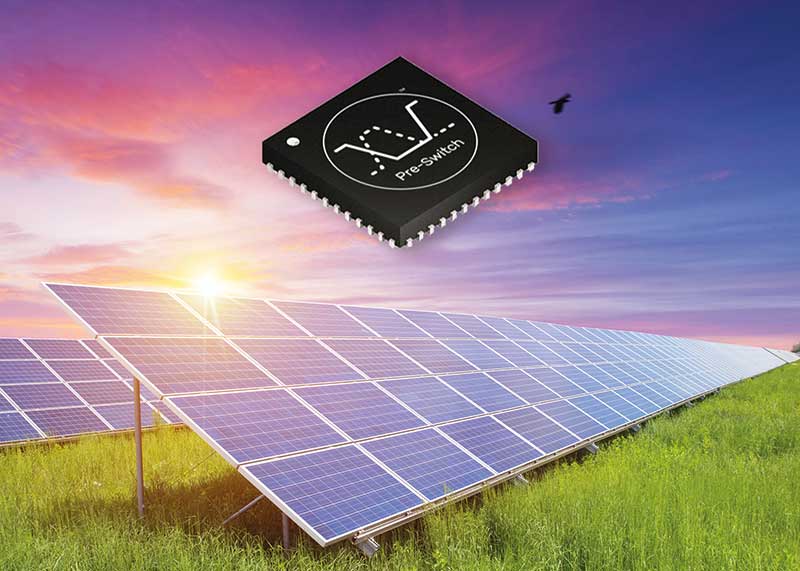 Two-stage architecture and platform enables significant cost reduction and simplification of renewable energy systems; Grid tie filter size slashed by up to 80%
Two-stage architecture and platform enables significant cost reduction and simplification of renewable energy systems; Grid tie filter size slashed by up to 80%
October 22 2019, Campbell, Ca., USA: Pre-Switch, Inc., a Silicon Valley start-up that emerged from stealth mode last year, has announced that its revolutionary soft-switching IGBT and silicon carbide gate driver architecture, including the Pre-Drive™3 controller board, powered by the Pre-Flex™ FPGA, and RPG gate driver board, can significantly reduce the cost of solar inverters. The two-stage architecture delivers the same switching loss performance – or better – as a five-level design, resulting in reduced cost, control complexity and BOM count. Also, Pre-Switch enables the simplification and size reduction of inverters and filters used in renewable energy systems, enabling energy to be put back into the grid easily and efficiently.
The Pre-Switch soft-switching platform enables a doubling of power output for a typical inverter, or an increase in switching speed by a factor of up to 20 times. Previously, soft-switching has never been successfully-implemented for DC/AC systems with varying input voltage, temperature and load conditions. However, Pre-Switch has overcome the challenges by using Artificial Intelligence (AI) to constantly-adjust the relative timing of elements within the switching system required to force a resonance to offset the current and voltage wave forms – thereby minimizing switching losses.
Explains Pre-Switch CEO, Bruce T. Renouard: “Our benefit for solar energy system designers is that our soft-switching architecture eliminates half of the system losses. So we are able to achieve performance levels with a simple two stage design that would require five stages using conventional multi-level techniques.”`
He adds: “The architecture also allows the grid tie filter size to be reduced by up to 66.67% for IGBT systems and by up to 80% for SiC MOSFETs. That is a huge advantage, not only in system size but also materials and shipping cost savings.”
